December
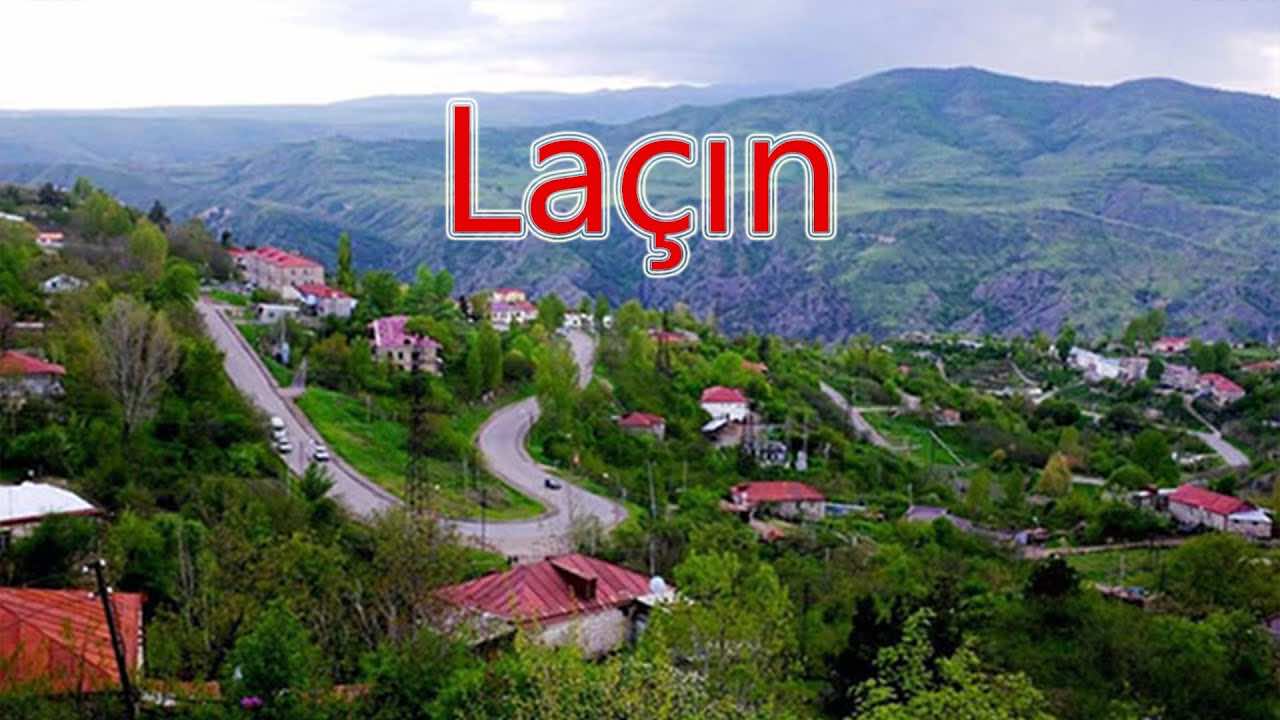
The liberation of Lachin district from occupation
Lachin district - is one of the charming corners of the Republic of Azerbaijan - is located in the south-western part of the Minor Caucasus. It neighbors with Kalbajar district in the north, Gubadli district in the south, disctricts of Khojaly, Shusha and Khojavend in the east and Armenia in the west. The area of Lachin district is 1835 km2 and its envisages a city, a settlemet and 125 villages. The territory was included in the Karabakh Khanate and Zangezur district from the time of Tsarist Russia until it was organized as an independent administrative district in 1930.

International Day of Persons with Disabilities
The annual observance of the International Day of Persons with Disabilities was proclaimed in 1992, by the United Nations General Assembly resolution 47/3. The observance of the Day aims to promote an understanding of disability issues and mobilize support for the dignity, rights, and well-being of persons with disabilities. It also seeks to increase awareness of gains to be derived from the integration of persons with disabilities in every aspect of political, social, economic, and cultural life.
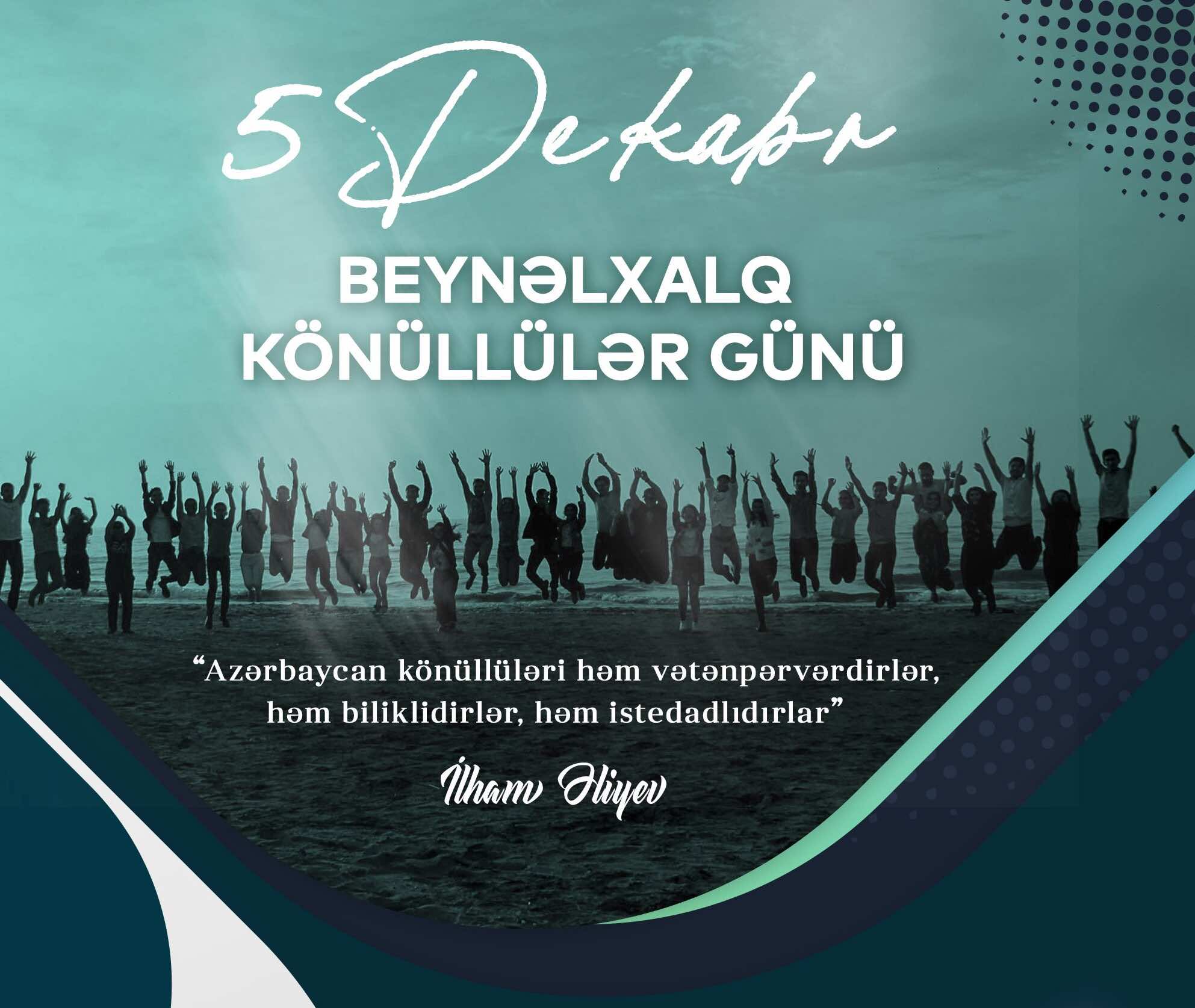
International Volunteer Day
Voluntary activity first emerged in the French army in the 17th century. This term came into existence after the registration of the French who wanted to become volunteer soldiers. So, in that period in Europe, those who voluntarily joined the military service were called "volontaires", i.e., "volunteers". The basis of volunteering is the philosophy of altruism. Volunteering is considered an altruistic activity where an individual or group provides services for no financial or social gain. The history of altruism is inextricably tied to sociology.

Professional holiday of workers of communications and information technologies
The sphere of communication in Azerbaijan has a long and peculiar history. Back in 1501, Shah Ismail Khatai, the head of the Safavid state, laid the foundations of state postal communication. Establishment of the first communication institution in Azerbaijan as post office dates to the beginning of 19th century. The first post office was opened in Ganja in 1818. The first telephone communication in Baku was established in 1881, and on 6 December of the same year the first telephone line was laid by “Nobel Brothers Oil Production Partnership”. By 1885 there were functioning already 14 telephone lines in Baku.
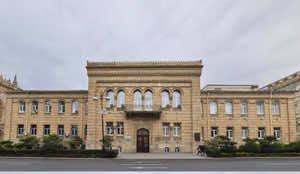
Establishment of the Parliament of the Azerbaijan Democratic Republic
The Azerbaijan Democratic Republic and its Parliament came to the scene in a very difficult and complicated historical period. The special governing committee for the Transcaucasia made of the elected members of the Transcaucasian State Duma was formed after the February 1917 revolution in Russia. The Transcaucasian Commissariat was established in November. Those Transcaucasian delegates who had been elected to the Russian Constituent Assembly but could not join its proceedings after the Bolshevik coup of October were gathered in Tiflis on 14 February 1918.

Human Rights Day
Human Rights Day is celebrated by the international community every year on 10 December. The Universal Declaration of Human Rights (UDHR) based on the thesis that “All human beings are born free and equal” was proclaimed by the United Nations General Assembly in Paris on 10 December 1948 and sets out, for the first time, fundamental human rights to be universally protected. In 1950, the UN General Assembly invited all states and interested organizations to celebrate 10 December as Human Rights Day.
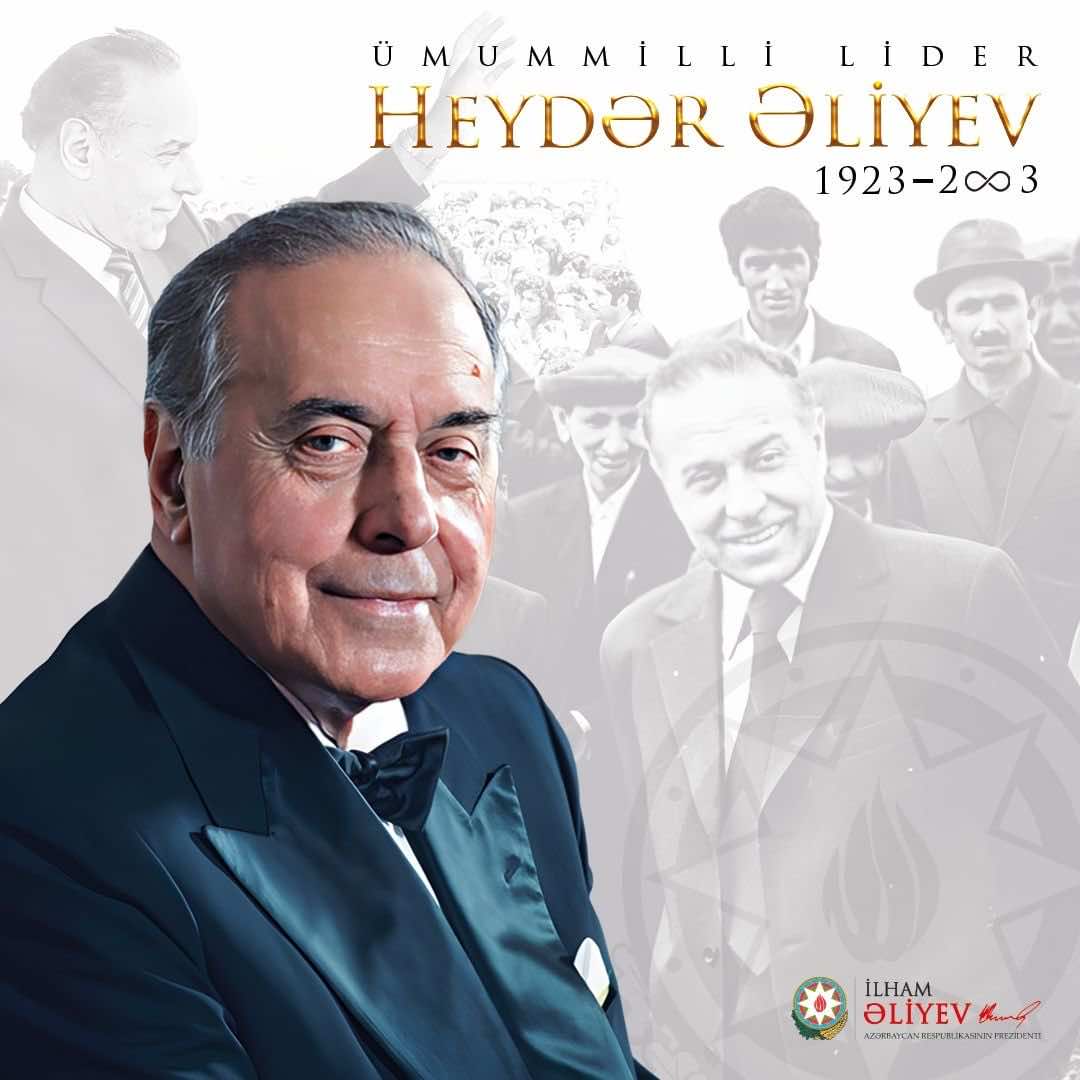
Memorial Day of National Leader Heydar Aliyev
Heydar Alirza oglu Aliyev was born on May 10, 1923, in Nakhchivan, Azerbaijan. In 1939, after graduating from Nakhchivan Pedagogical School he entered the Azerbaijan Industrial Institute, Faculty of Architecture, but the outbreak of World War II prevented him from completing his education. In 1941-1944, Heydar Aliyev headed a secret division at the Archive Department of the People's Commissariat of Internal Affairs of Nakhchivan Autonomous Republic and then served as head of the General Department of the Council of People's Commissars of Nakhchivan Autonomous Soviet Socialist Republic. In May 1944, he was sent to work at state security bodies.
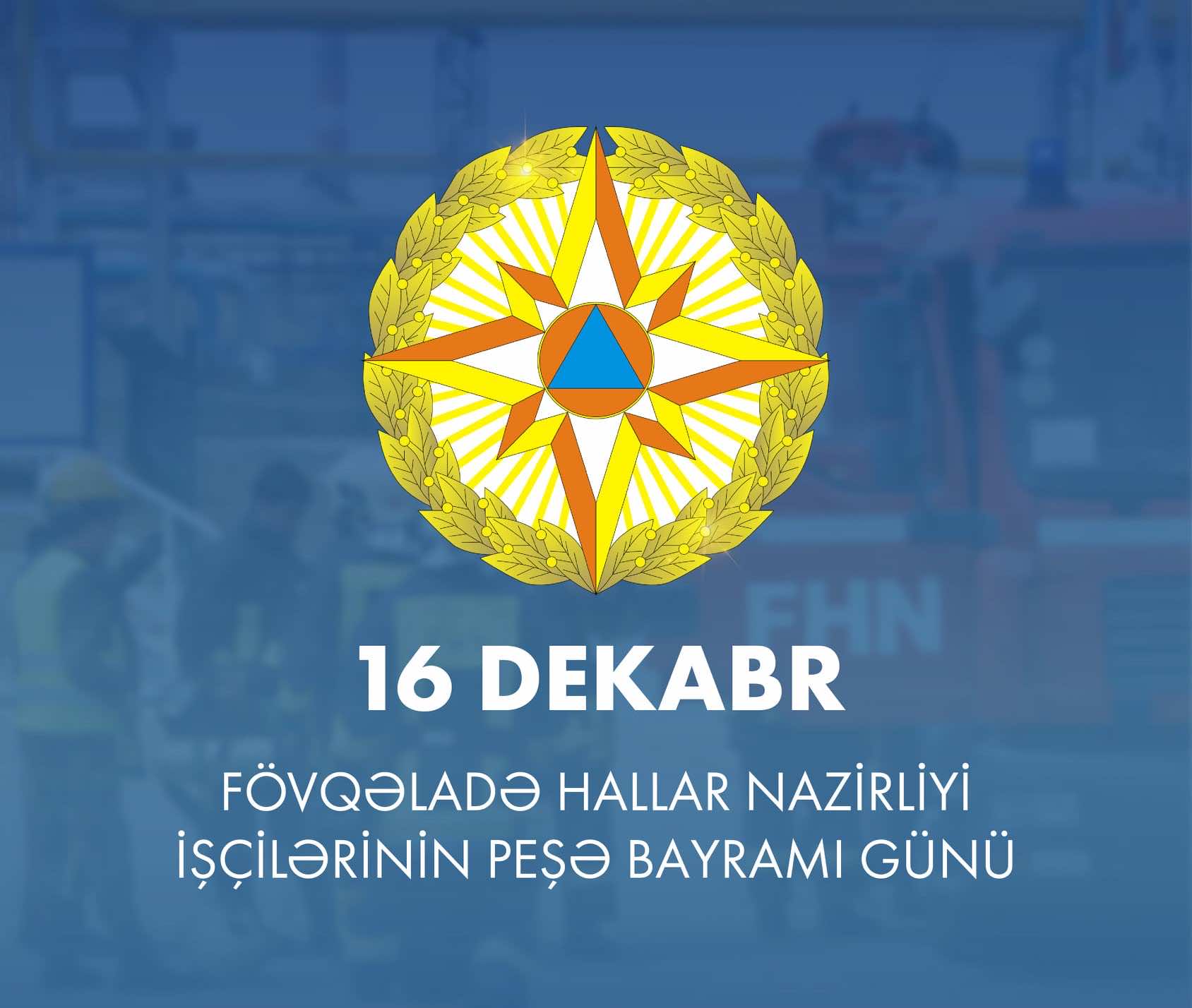
Professional holiday of employees of the Ministry of Emergency Situations
In the modern era, the comprehensive solution to numerous ecological problems primarily lies in the balanced development of the economy, its effective environmental management, and most importantly, ensuring its protection and safety. The Ministry of Emergency Situations employees have undertaken this significant and responsible task. The President of the Republic of Azerbaijan Ilham Aliyev signed a Decree establishing the Ministry of Emergency Situations on December 16, 2005. According to the Presidential Decree dated December 8, 2006, December 16 of each year is celebrated in our country as the professional holiday of the Ministry of Emergency Situations employees.
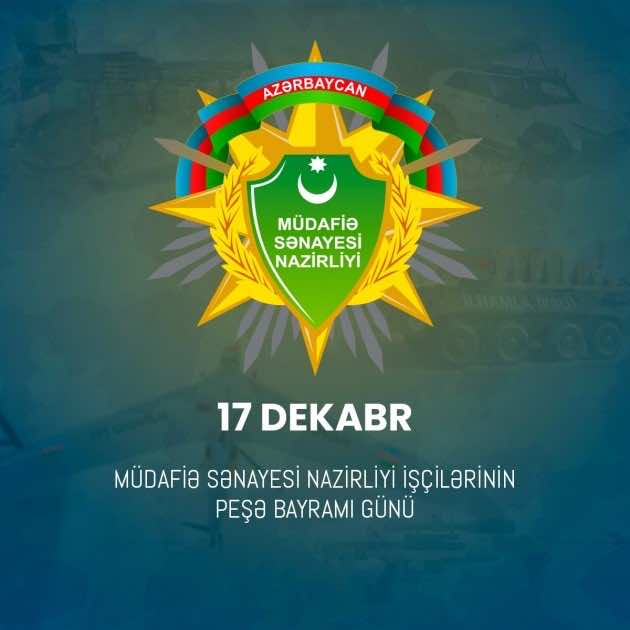
Professional holiday of employees of the Ministry of Defense Industry
December 17 is the professional holiday of employees of the Ministry of Defense Industry of the Republic of Azerbaijan. According to the Decree of the President of the Republic of Azerbaijan Ilham Aliyev dated November 10, 2009, December 17 is annually celebrated as a professional holiday for defense industry employees. The history of the development of the defense industry of Azerbaijan is extensive and varied. Our people actively participated in many innovative works that are of particular importance in achieving a high level of global military-industrial science, technology, and production.
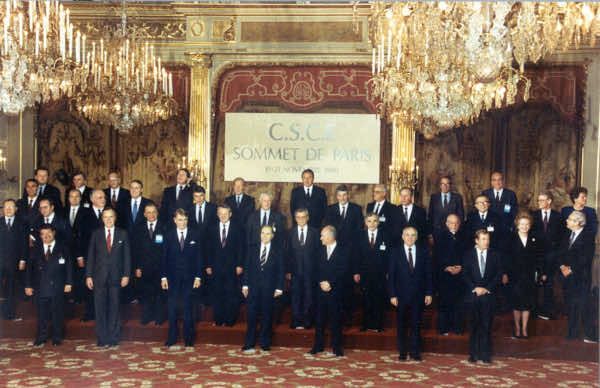
Azerbaijan joined the Charter of Paris for a New Europe
The OSCE’s origins date back to the early 1970s, to the Helsinki Final Act (1975) and the creation of the Conference on Security and Co-operation in Europe (CSCE), which during the Cold War served as an important multilateral forum for dialogue and negotiations between East and West. The preparatory talks that marked the start of the actual negotiating process for the CSCE took place between November 1972 and June 1973 in Helsinki. The Conference on Security and Co-operation in Europe was officially opened on 3 July 1973 in Helsinki. It was the largest regional organization in terms of the number of States it brought together and the geographical area it covered.
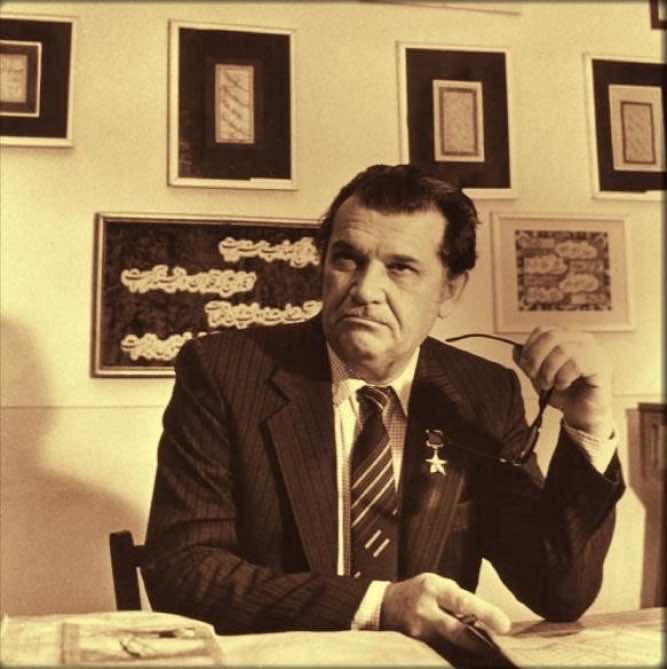
Academician Ziya Bunyadov
Ziya Musa oghlu Bunyadov was born on 21 December 1923 in the town of Astara, in Azerbaijan, in the family of a military translator. After finishing secondary school in Goychay, in 1939, he joined Baku Military School. After graduating from the Baku Military School in 1941, Lieutenant Z. Bunyadov fought on the fronts of the Great Patriotic War, took an active part in the battles for Ukraine, Moldavia, Caucasus, Belarus, Poland, and Berlin. He was wounded twice and received a concussion. On 27 February 1945, Z. Bunyadov was awarded the Soviet Union’s highest military honor, Hero of the Soviet Union, for his actions in the battles.
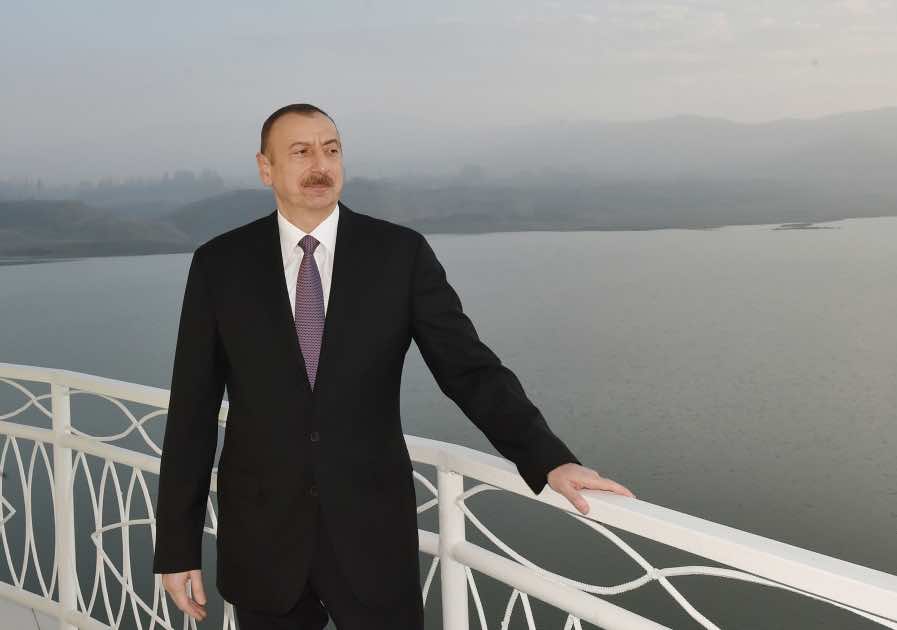
President of the Republic of Azerbaijan Ilham Aliyev
December 24 is the birthday of the outstanding statesman, President of Azerbaijan Ilham Aliyev. Ilham Heydar oglu Aliyev was born on December 24, 1961, in the city of Baku in the family of a prominent statesman and public figure Heydar Aliyev. He attended a secondary school number 6 in Baku from 1967 to 1977. In 1977-1982, he studied at the Moscow State University of International Relations (MSUIR). In 1982, he embarked on postgraduate studies at MSUIR. In 1985, he defended a thesis to receive a PhD degree in history. On April 30, 1994, by order of the President of the Republic of Azerbaijan, Ilham Aliyev was appointed as a vice-president of the State Oil Company of Azerbaijan Republic.

International Cinema Day
International Cinema Day is celebrated on December 28th. The emergence of cinematography begins with the “magic lamp”, shown in the 20th century. Using this device, a sequence of images drawn on glass could be projected onto a wall (like a slide projector). The device was controlled manually. In 1832, the German Simon Stampfer and the Belgian Joseph Plato made a “living wheel” at the same time, without knowing each other. This wheel worked on the principle of a magic lamp. By rotating it, it was possible to obtain smooth moving frames because of sequential movement of images on it. In 1845, engineer Franz von Uchatius invented a new device based on a combination of these two devices.
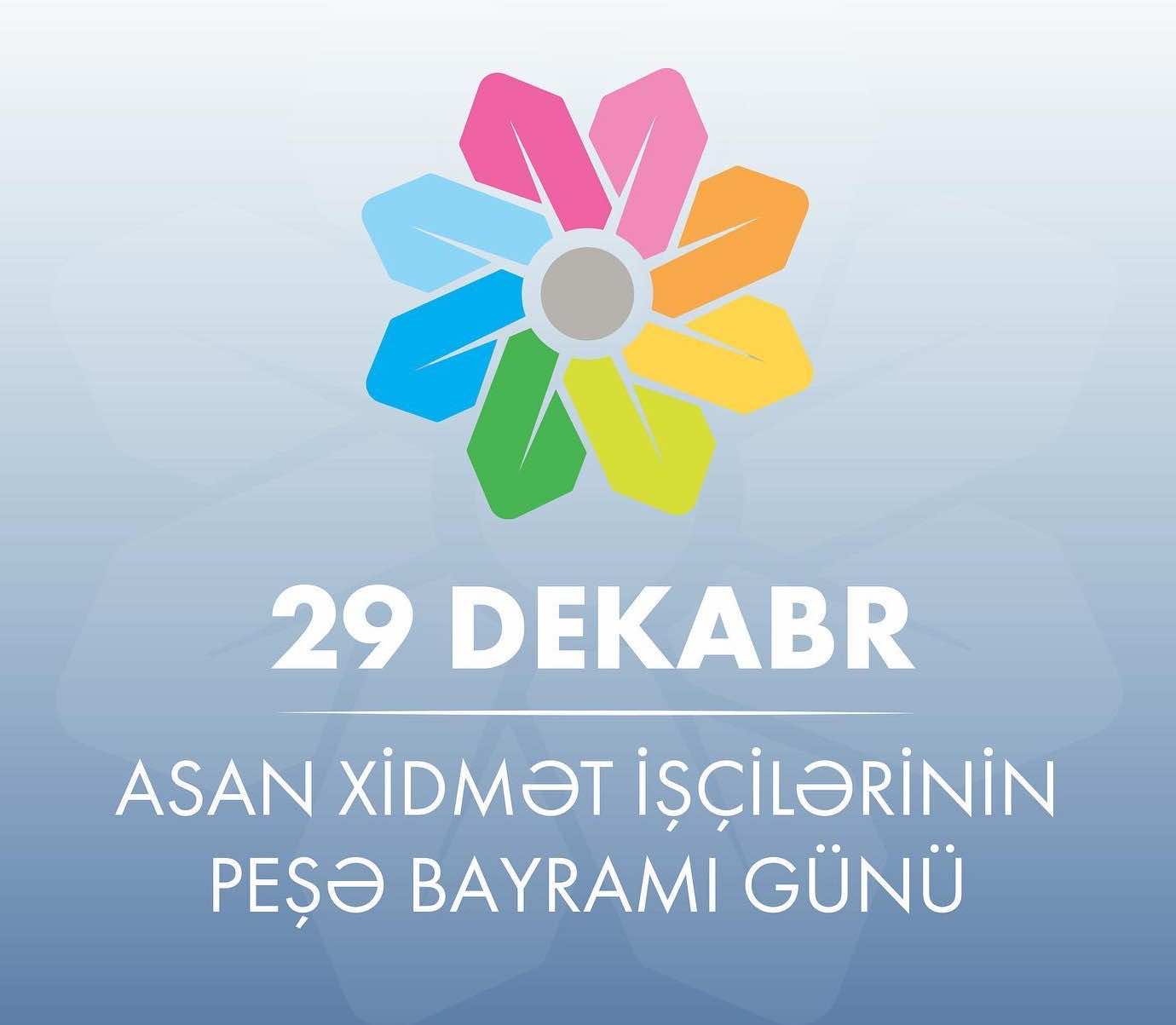
Professional holiday of "ASAN service" employees
Azerbaijan’s President Ilham Aliyev signed a decree to establish a professional holiday for ASAN Service employees December 29. According to the decree, and taking into account that the first ASAN Service center has been operating since December 29, 2012, this day is celebrated annualy as a professional holiday of ASAN Service employees. The State Agency for Citizens’ Service and Social Innovation under the President of the Republic of Azerbaijan has been established in accordance with Decree No. 685 of the President of the Republic of Azerbaijan dated July 13, 2012, and “ASAN Service” centers were established of the same decree, subordinated to the State agency.
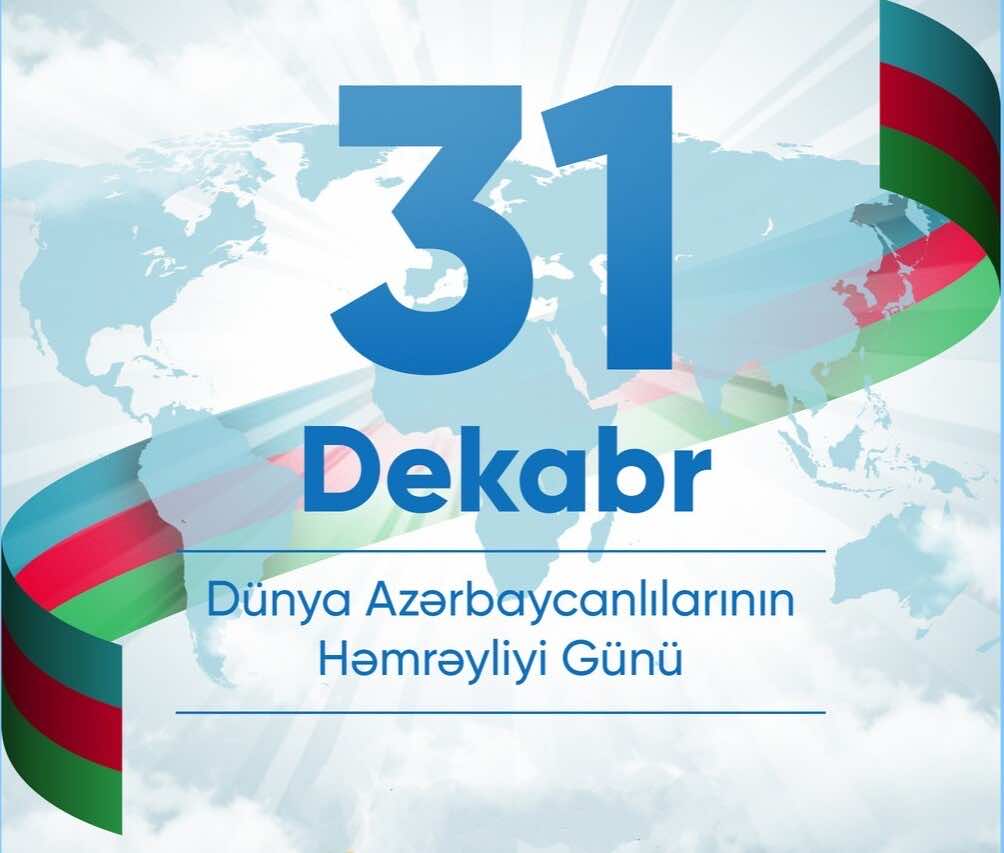
World Azerbaijanis Solidarity Day
December 31 - is the World Azerbaijanis Solidarity Day. Celebrating the last day of December each year as the World Azerbaijanis Solidarity Day serves to strengthen the ties of our compatriots scattered across different countries with their historical homeland, independent Azerbaijan. It also aims to establish close communication among them and contribute to preserving our national and moral values and traditions. The foundation of the World Azerbaijanis Solidarity Day was laid in late December 1989 during the dissolution of borders (between the USSR and Iran) in Nakhchivan. Border posts between Northern and Southern Azerbaijan were dismantled.
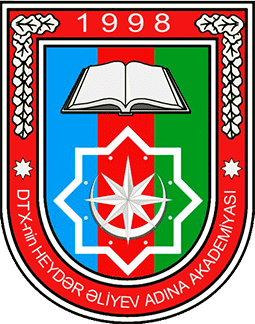
Academy of the State Security Service of the Republic of Azerbaijan named after Heydar Aliyev
The establishment of the Academy of the State Security Service named after Heydar Aliyev, one of the important state institutions, is directly related to the name of the national leader Heydar Aliyev. The Academy was established by the Order of the national leader Heydar Aliyev No. 37 dated December 1, 1998. Having clearly defined that education plays an indispensable role in the construction of an independent state, Heydar Aliyev, as a result of his rich creative heritage, state policy and activities, preserved the national character of the Azerbaijani education system.
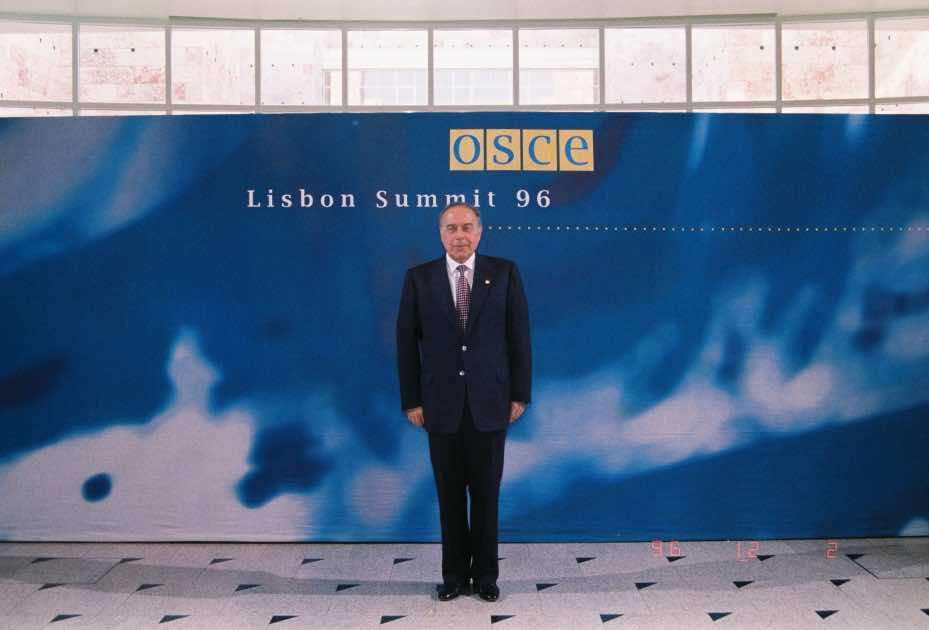
The meeting of the OSCE Lisbon Summit
After the Republic of Azerbaijan restored its independence, it gained a historic opportunity to develop and strengthen its statehood. In such a context, forming and implementing a new foreign policy course by the principles of national statehood became a crucial task. The main priority was to convey to the international community the facts of military occupation, ethnic cleansing, the gross violation of the rights of nearly one million Azerbaijani refugees and internally displaced persons, and the destruction of our historical and cultural heritage by Armenians in a significant part of the country.
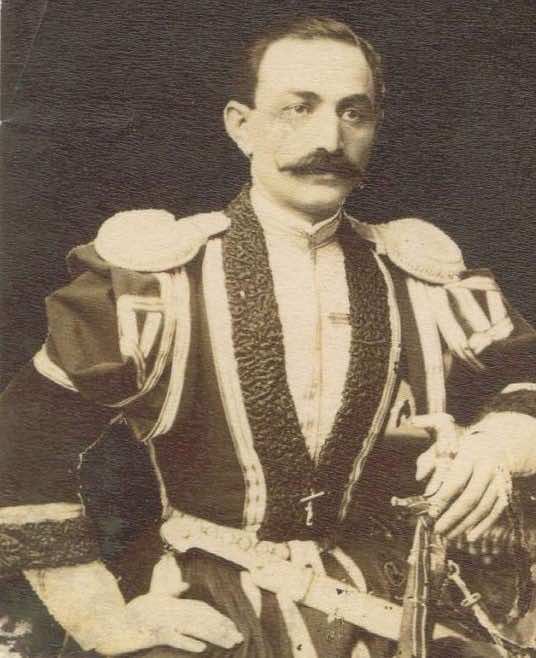
General Faraj bey Aghayev
General Faraj bey Aghayev was born on December 4, 1811, into a noble family in Shusha in Karabakh. After receiving his initial military education at the Tiflis Cadet Corps, he began serving in 1837 with the Muslim Cavalry Regiment of the Russian Caucasus Army. Faraj bey, the distinguished guard captain was sent to St. Petersburg as a squadron commander in the seventh year of his service. In St. Petersburg, he was appointed commander of the Life Guards in the Special Guard Cossack Regiment of Nicholas I. With his exceptional military skills and discipline, Faraj bey attracted the attention of Nicholas I and his wife, Maria Alexandrovna.
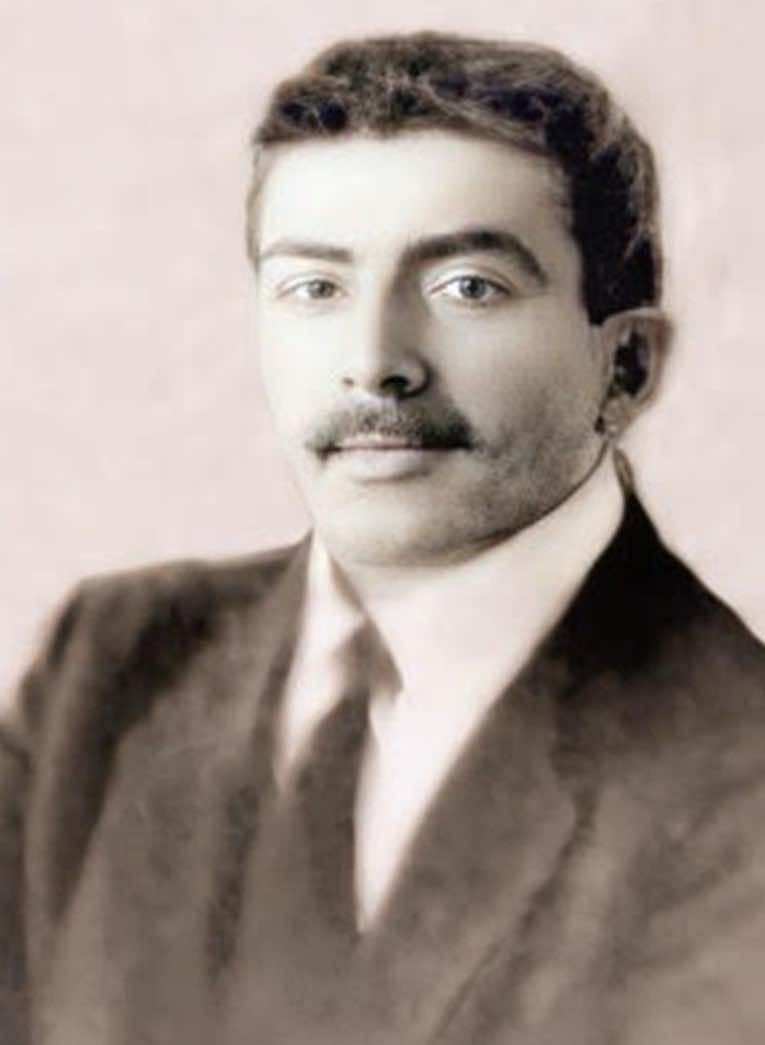
Public and political figure Teymur khan Makinski
Teymur khan Makinski was born in Irevan, in 1874. Being descendants of the Maku Khans, who had lived in Irevan, the family of Makinski was the close relative to the Irevanski family - the successors of the family of Irevan Khans. Teymur Khan Makinski was one of the founders of the Azerbaijan Democratic Republic. He finished the Irevan gymnasium and in 1916, with the diploma of the first degree graduated from the law department of the Warsaw University. Teymur khan Makinski was one of the active participants of the National Liberation Movement, which has begun in Azerbaijan at the beginning of the XX century.
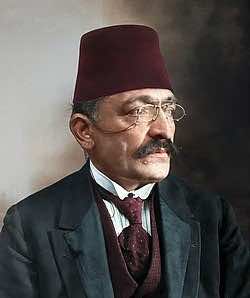
Prominent public and political figure Ahmad bey Agayev (Ağaoğlu)
Ahmad bey Mirza Hasan oghlu Agayev, also known as Ahmad Ağaoğlu was born in 1869 in Shusha, Azerbaijan. He was one of the ideologists of the Turkism movement, a prominent public and political figure, publicist, writer, lawyer, orientalist-Islamic scholar, journalist, and educator. Ahmad bey Agayev was a descendant of Panahali Khan, the Khan of Karabakh. He received his initial education at a Russian school in Shusha and the Tiflis Gymnasium. Then he enrolled in the Institute of Engineering and Technology in St. Petersburg but left midway in 1888 to move to Paris, where he graduated from a law school and later from Sorbonne University.
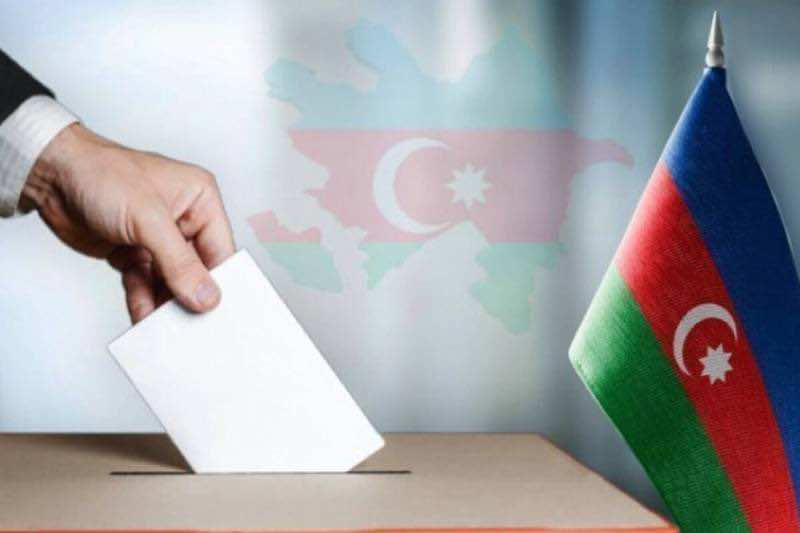
The first municipal elections in the Republic of Azerbaijan
The conceptualization of “local self-government” in Azerbaijan emerged during the latter part of the 19th century, coinciding with Azerbaijan’s integration into Tsarist Russia. In 1878, the first municipal elections for the Baku City Duma, a local self-government body, were conducted in Baku. Eligibility for candidacy in the Duma elections was subject to various restrictions and prerequisites. The elected members of the Duma were predominantly comprised of affluent oil magnates, merchants, factory owners, and ship proprietors.
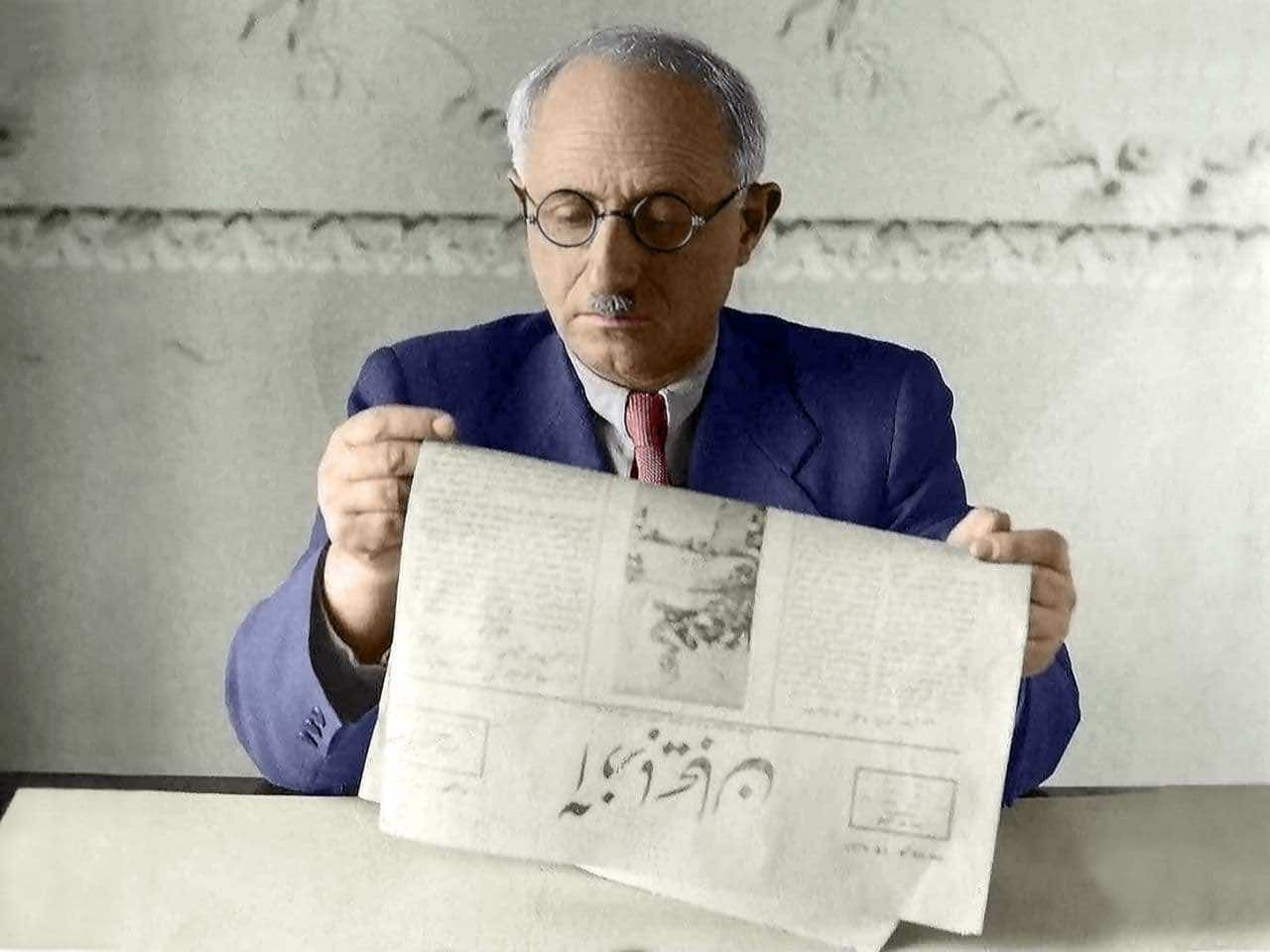
The national democratic and liberation movement in Southern Azerbaijan
After the end of World War II, the increasingly deepening contradictions among the former allies, primarily between the United States, the United Kingdom, and the Soviet Union, were also reflected in their policies toward Iran. They attempted to bring various forces to power in Iran in line with their interests. Reactionary circles in Tehran, in cooperation with enemies of the national democratic movement, organized clashes among different groups within the population. The course of events compelled Azerbaijani democrats to resort to defensive measures. In September 1945, armed volunteer units - fedayeen began to form in various parts of Azerbaijan.
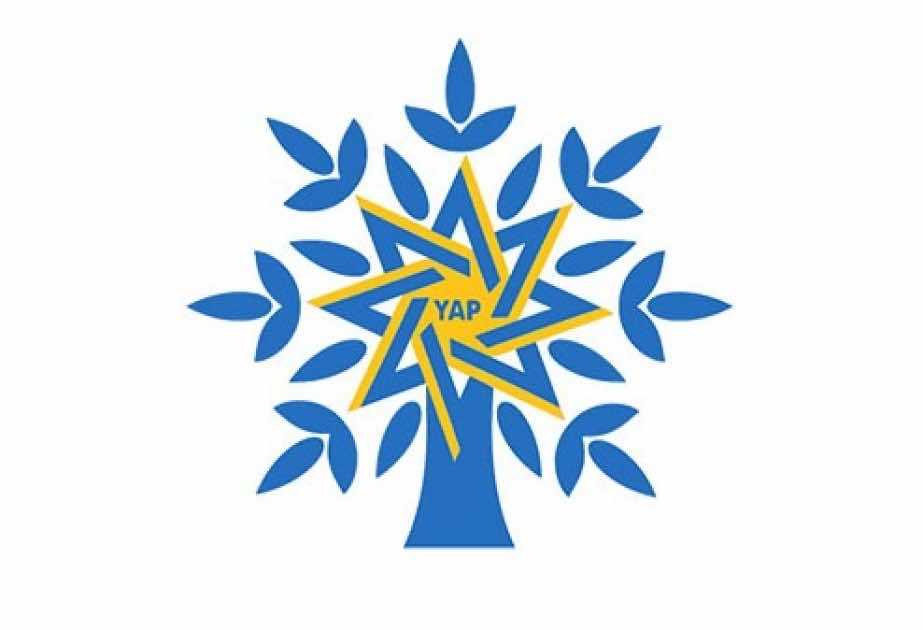
The 1st Congress of the Yeni Azerbaijan (New Azerbaijan) Party
The “Yeni Azerbaijan” Party (New Azerbaijan Party) was established at the initiative and with active participation of Azerbaijani intellectuals during the period of hardship of the Azerbaijan history, when the country was undergoing serious ordeal. Foundation of this party was the result of events that had taken place in Azerbaijan since 1988 and logical conclusion of the existing social-political conditions. The establishment of the “Yeni Azerbaijan Party” coincided with the period of the hard economic, political and the spiritual crisis, when the ruling political forces replacing one another even worsened the existing situation in the country, bringing it to the dangerous crisis.
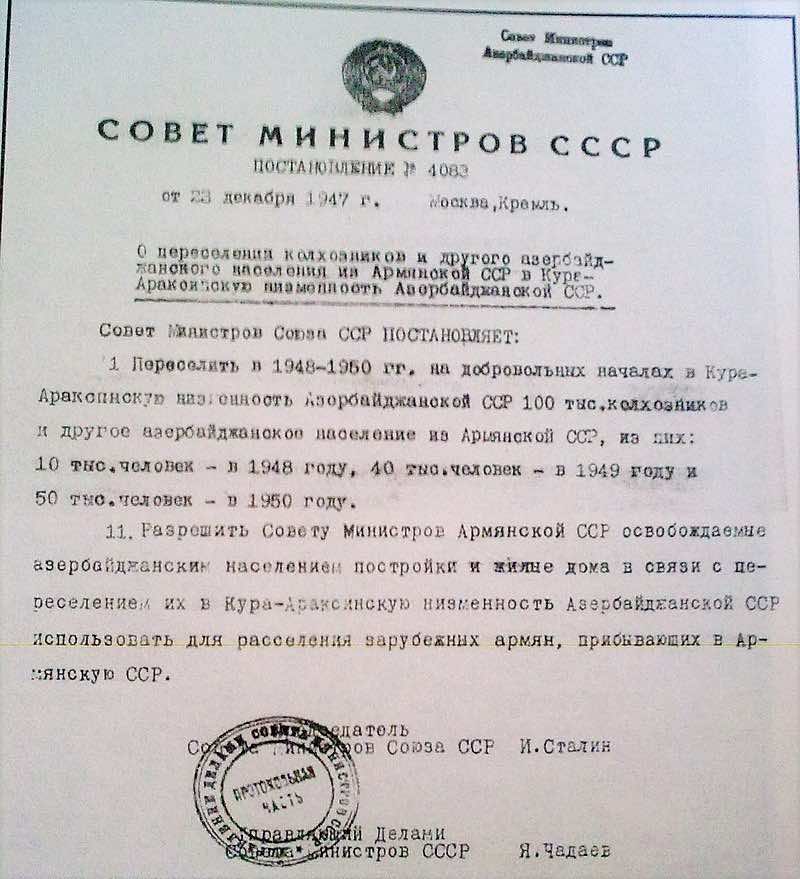
The mass expulsion of Azerbaijanis from their historical and ethnic lands in the Armenian SSR (December 23, 1947)
The mass deportation of Azerbaijanis from the historical and ethnic lands of the Armenian SSR in 1948-1953 was the next stage in the policy of Armenians and their protectors to take advantage of the dominance of the Soviet Union at the end of World War II. On 15 May 1945, Grigory Arutyunov, First Secretary of the Central Committee of the Communist Party of Armenia, addressed a letter to Stalin, asking him to solve the issue of “the return” of Armenians living abroad to Soviet Armenia. On 6 June 1945, Stalin receives G. Arutyunov in the Kremlin.
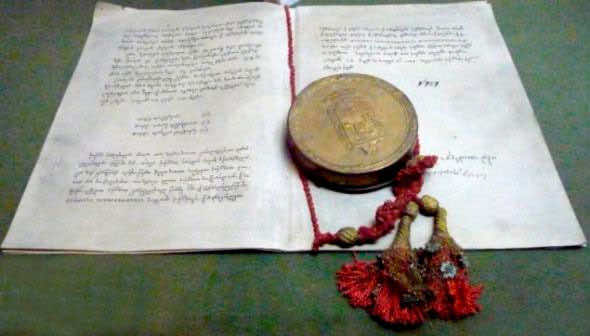
Treaty of Georgievsk (1802)
In the 18th-19th centuries, the internal and international situation of Azerbaijan was very difficult. The territory of Azerbaijan was divided into the small feudal states. The internal situation in Azerbaijan was characterized by incessant wars between khans for the seizure of neighboring territories, increased class conflicts between feudal lords and peasants, and economic decline. Russian incursions into the South Caucasus and the devastating campaigns of the Iranian conquerors further aggravated the situation.

The establishment of the State Oil Fund of the Republic of Azerbaijan
The oil industry plays a very important role in our lives. Although oil is the national wealth of the Azerbaijani people, this valuable resource was sufficiently exploited over the years by Tsarist Russia and later by the Soviet state. However, after the restoration of state independence, and despite the fact that the country's economy was in a deep recession, as a result of the far-sighted policies of the National Leader Heydar Aliyev, Azerbaijan was able to benefit from its rich hydrocarbon resources.
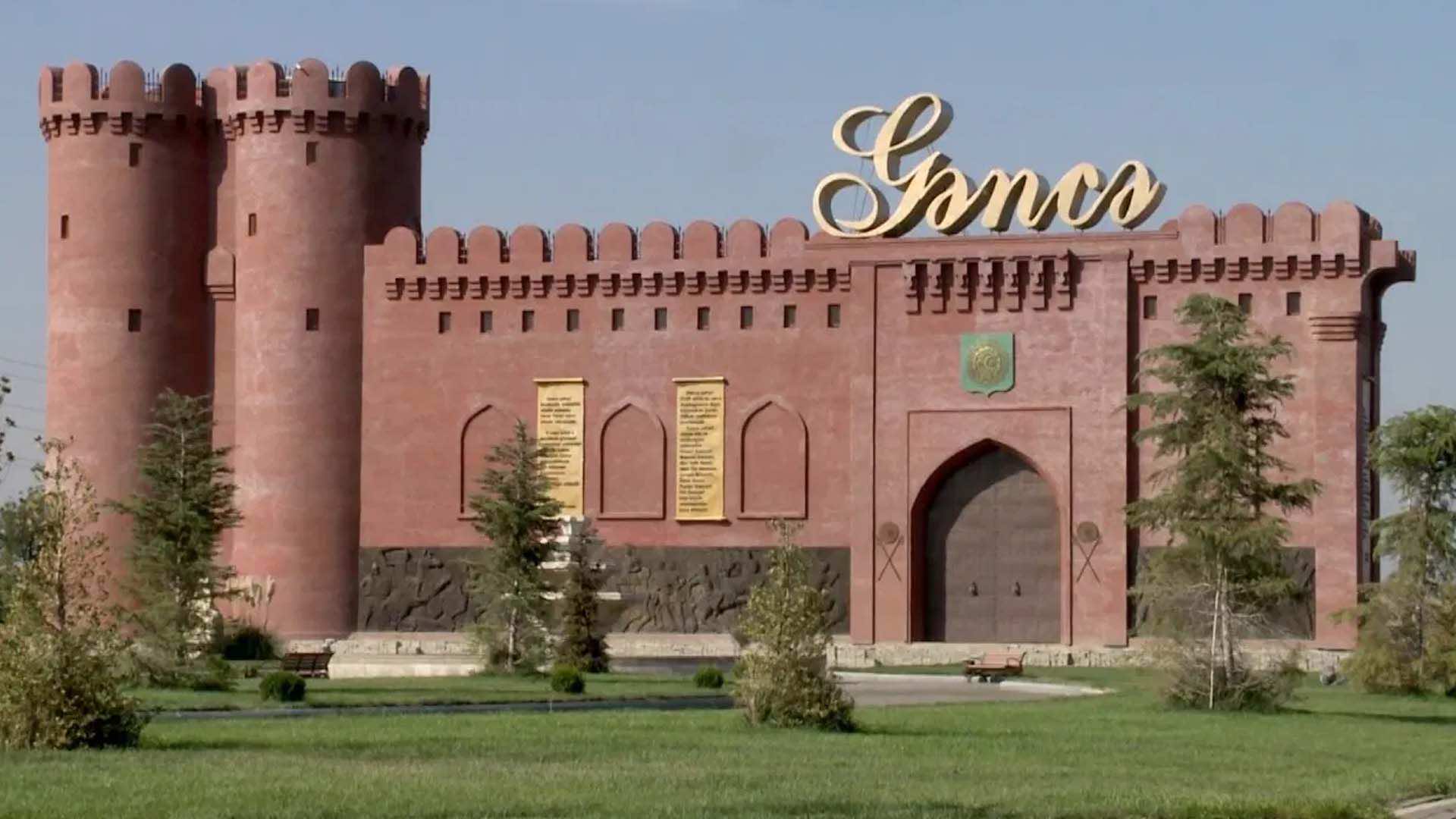
Restoration of the historical name of the city of Ganja
There are various historical assumptions about the formation of Ganja as a city. Some scientists attribute the formation of the city to our era, and most of them - to the beginning of the Middle Ages. Speaking about the history of the city, it is impossible not to mention that this city is a socio-economic and cultural center. Ganja, like other cities of our country (Gabala, Nakhchivan, Sheki, Shemakha), was a settlement with a beautiful geographical landscape, which gradually developed into a city.